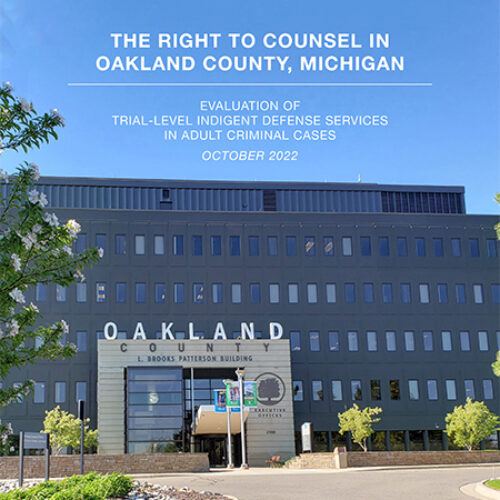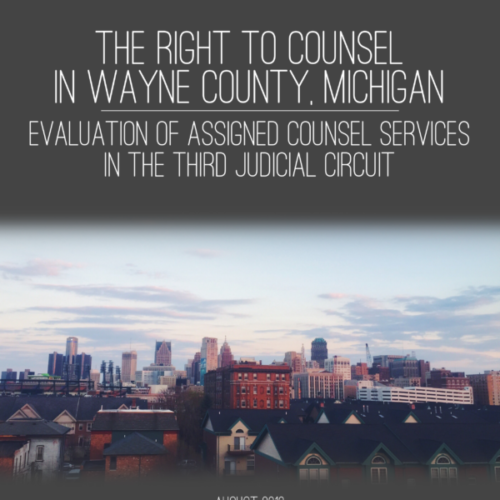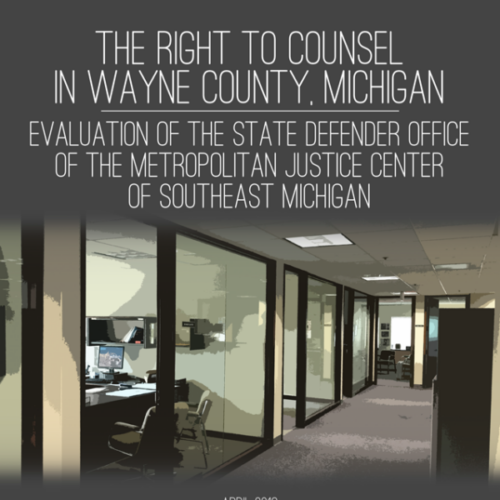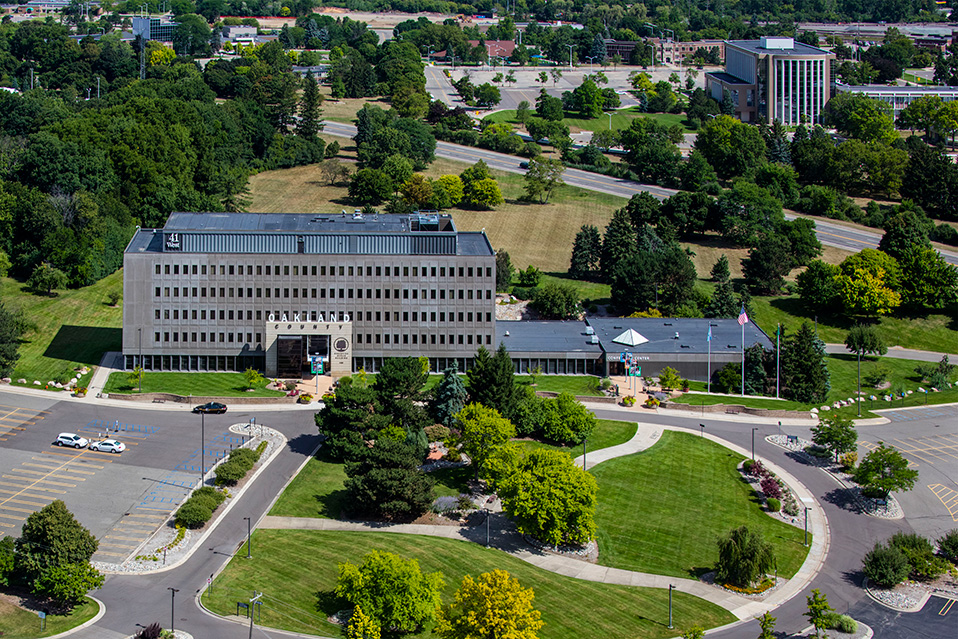Michigan
The state of Michigan delegates to its local governments the responsibility for administering trial-level adult indigent defense services. A state commission funds most services for local compliance with state standards. The commission oversees services statewide.
The state of Michigan administers all indigent defense services for adult criminal cases in its appellate courts. State and local governments share funding obligations, including local funding with state reimbursements. A state commission oversees all appellate services statewide.
-
83 Counties Primarily State Funded
-
83 Counties Locally Administered
-
83 Counties with a Commission With Statewide Authority
-
83 Counties Shared State and Locally Funded
-
83 Counties State Administered
-
83 Counties with a Commission With Statewide Authority
Every trial court district in the state of Michigan administers its own indigent defense system and is required by state law to pay a minimum share of the associated costs, calculated based on historical spending. The state funds local systems for any additional costs necessary to comply with state standards. Because many jurisdictions historically spent very little on indigent defense, the state is the predominant funder in those jurisdictions and statewide. Local systems provide services through public defender offices or private attorneys paid on an hourly or flat fee basis, or through a combination of the two.
The Michigan Indigent Defense Commission (MIDC) is responsible for providing statewide oversight of adult trial-level indigent defense across Michigan. The governor appoints MIDC’s 18 members based on recommendations from diverse groups. The commission members appoint an executive director to carry out daily operations with a staff. The commission collects data on local systems and promulgates and enforces standards. There is a separate state agency, the State Appellate Defender Office, responsible for appellate representation, which is overseen by a separate commission, the Appellate Public Defender Commission.
The State Appellate Defender Office (SADO) is responsible for providing all adult criminal appeal representation statewide and does so through two divisions. First, the public defender division represents about 25% of appeals through state-funded staff attorneys. Second, the Michigan Appellate Assigned Counsel System (MAACS) manages a roster of private attorneys who handle about 75% of appeals. Counties pay private attorneys on an hourly basis, with the state reimbursing half the costs if the county complies with MAACS policies. After three years of compliance, the state begins reimbursing all costs exceeding one-half of the system’s average expenses over the past three years. SADO’s two divisions also handle juvenile appeals.
The state appellate defender leads SADO and appoints an administrator to manage MAACS and oversee the appointment of appellate counsel to cases. The Appellate Defender Commission oversees the appellate system. The governor appoints the commission’s seven members, based on recommendations from diverse groups. The commission appoints the state appellate defender, and it promulgates and enforces statewide standards. There is a separate state commission, the Michigan Indigent Defense Commission, responsible for providing statewide oversight of adult trial-level indigent defense.

Dig Deeper
Who serves on the commission?
How do state standards get approved?
Which state standards have been approved?
How do local indigent defense systems comply with approved state standards?
How does the commission enforce approved state standards?
Is the commission’s oversight of local indigent defense systems at all limited?
How much do local governments pay to fund indigent defense in the state?
In which branch of state government does the indigent defense system reside?
Who serves on the commission?
How do state standards get approved?
Are there any continuing legal education requirements to remain on the private attorney roster?
How are private attorneys assigned to cases?
What is the Criminal Defense Resource Center?
In which branch of state government does the appellate indigent defense system reside?
Michigan Evaluations
-
 October 2022
October 2022The Right to Counsel in Oakland County, MichiganEvaluation of Trial-Level Indigent Defense Services in Adult Criminal Cases
-
 August 2019
August 2019The Right to Counsel in Wayne County, MichiganEvaluation of Assigned Counsel Services in the Third Judicial Circuit
-
 April 2018
April 2018The Right to Counsel in Wayne County, MichiganEvaluation of the State Defender Office of the Metropolitan Justice Center of Southeast Michigan
Support Our Work
Criminal justice issues that disproportionately harm poor people, such as wrongful convictions and over-incarceration, cannot be fixed if indigent defendants are given attorneys who do not have the time, resources, or qualifications, to be a constitutional check on government. Yet, investment in improving indigent defense services remains largely neglected. The Sixth Amendment Center is the only nonprofit organization in the country that exclusively examines, uncovers, and helps fix the root of the indigent defense crisis in which inequality is perpetuated because poor defendants do not get a fair fight.
The Sixth Amendment Center is a tax-exempt 501(c)(3) nonprofit organization under EIN: 45-3477185.
Donations are tax-deductible to the fullest extent allowable under the law.






